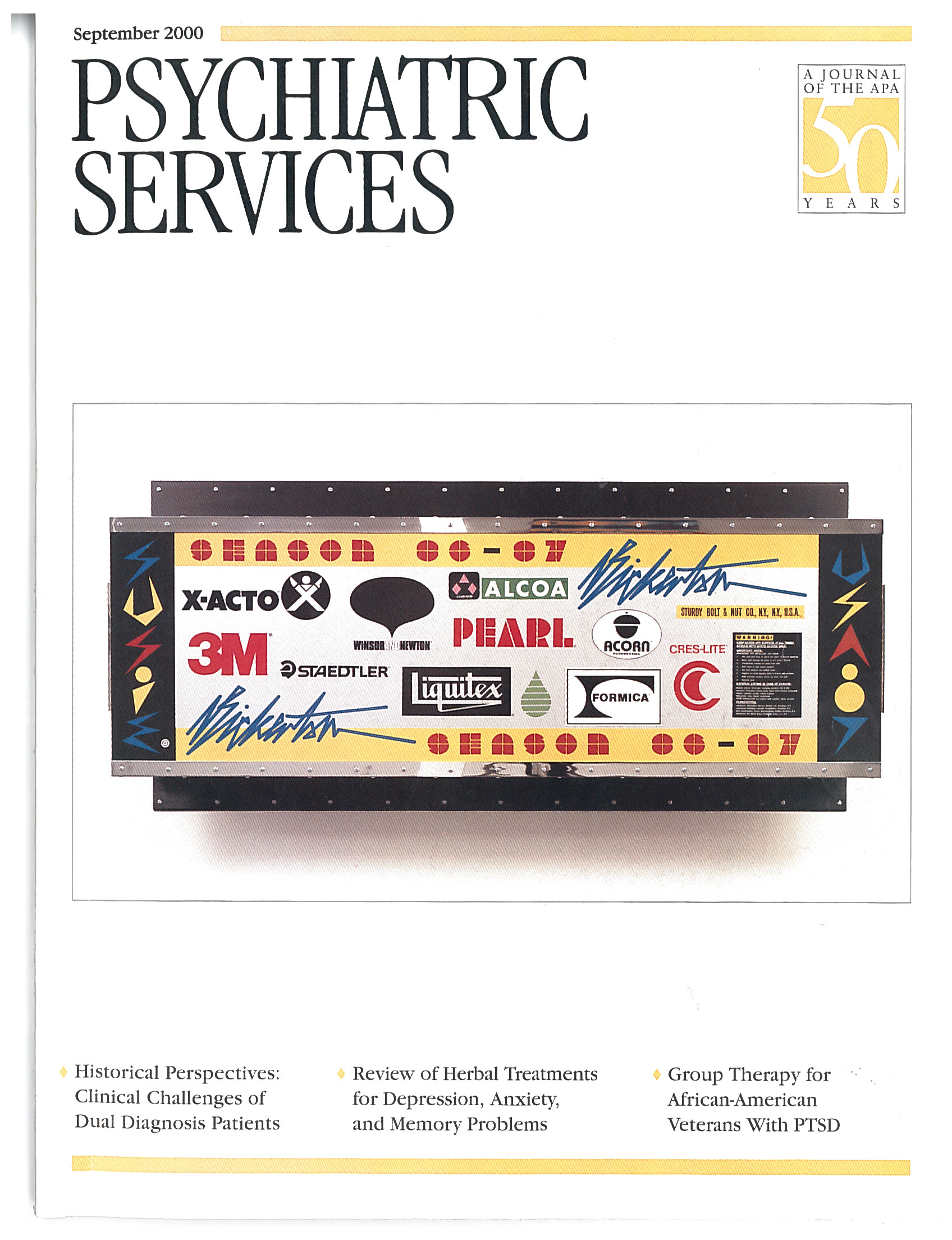The 1989 article by Dr. Anthony Lehman and his colleagues on assessment and classification of dual diagnosis patients (reprinted on page 1119) can be viewed both as a catalyst for improved treatment in the comorbidity field and as a reminder of how much more information is now available on prevalence, assessment, and treatments that "work" for persons with co-occurring mental and substance use disorders.
For prevalence data, Dr. Lehman relied on the Epidemiologic Catchment Area study, which was not yet updated to include persons with dual disorders. His article also predated the seminal National Comorbidity Study (NCS), published in 1991 and updated in 1994. The NCS, together with the many papers and monographs related to comorbidity written in the 1990s by senior federal administrators and by psychiatric and other clinicians—as well as many studies about assessing and treating dually diagnosed persons—put co-occurring disorders on the front-burners of the nation and resulted in recognition of the problem by Congress and state legislatures.
The prevalence rate of such co-occurring disorders continues to increase to the point that many nationally recognized experts have written, in effect, that dual diagnosis is an expectation, not an exception, for persons who present for treatment at a mental health facility or a substance abuse facility. It is now estimated that 60 to 90 percent of people seeking treatment at such facilities have dual disorders and that comprehensive, integrated treatment produces far better and more cost-effective clinical, functional, and quality-of-life outcomes.
I disagree, however, with Dr. Lehman's 1989 view that appropriate treatment depends on meaningful classification of subgroups of dually diagnosed patients. Instead, each patient should be assessed with the most current, most sophisticated assessment protocols favored by a large majority of the experts, based on instruments mostly not developed until the 1990s. After digesting the comprehensive assessment findings and making several face-to-face evaluations, a psychiatrist should be able to recommend targeted clinical and psychosocial interventions that will stabilize the comorbid patient, enable him or her to cope with the stresses of living in the community, and, one hopes, engage in substantial gainful activity or, at the very least, enjoy a better quality of life.
There can be no doubt, however, that the development of new and effective assessment protocols and cost-effective, integrated treatment programs, which have brought improved outcomes for dually diagnosed patients, are largely due to Dr. Lehman and associates' groundbreaking 1989 article.

